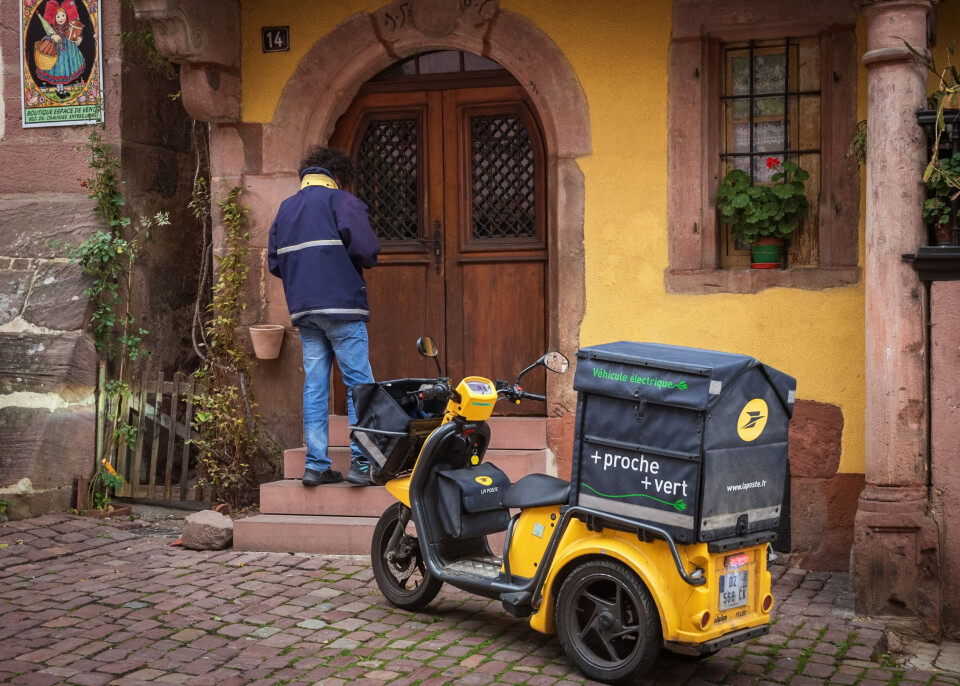-
New cyberattack hits La Poste parcel and banking service
Many services were unavailable for much of New Year’s Day. Personal data is reported to be safe
-
Readers report high customs charges on gifts sent to France
The cost of receiving gifts is sometimes higher than their value
-
What to do if Christmas parcels in France arrive late or damaged?
There are various routes to follow dependent upon the issue
New GPS address system in place across France after a decade roll-out
A house number and street must now appear on standardised addresses by law - but local communes got to name their own streets

New address systems for homes and businesses, imposed by an EU directive to standardise them for GPS, are now in place all over France.
The obligation for communes to maintain address databases in a standard format was reinforced by a measure in the huge ‘3DS’ law from the environment ministry, which was passed by parliament in February.
Read more: Why were the French so suspicious of street numbering?
Naming power now sits with communes
Prompted by the gilets jaunes protests, one of the objectives of the law was to give more power to local communes, including responsibility for naming and numbering roads and lieux-dits.
It follows a decade which has seen every commune in France slowly change addresses so they can fit in standard computer forms for a common database.
This has led to a multiplication of road signs, with previous lieu-dit signs having new road names planted next to them, even where the road is called ‘Route de (lieu-dit)’
Commercial reasons
Originally meant to speed up the deployment of GPS maps and navigation aids, the change also allows the government to sell off addresses to commercial businesses and forces utility companies, such as EDF, to open their address database to competitors if clients give their consent.
In October, EDF sent letters to all its clients asking if they were happy for these details to be passed on.
Read more: ‘Ghost areas’: The places in France where no one lives
Different systems in towns or rural areas
Government recommendations to communes on how they should run their address databases are still in place, and have led to two different systems – one for towns and another for rural areas.
In towns, almost all addresses are numeric, with the first house in a road numbered one, and continuing down the street with odd numbers on one side and even numbers on the other.
In rural areas, almost all communes have followed a metric system, where houses are numbered according to the distance in metres they are from an intersection.
House number and road name will not replace historic 'lieu-dit'
The system brought an end to centuries of tradition in France, where many rural addresses were simple lieux-dits.
Usually, these were either the name of a former occupant (Chez Jean was popular), or describing a local feature, such as Les Roches.
This made for a simple three-line address system, with the name of the recipient on the top line, the lieu-dit on the second line and the postcode and commune on the third.
Now a fourth line, giving the road name and number, must be added, meaning most rural addresses are the name of the recipient, the lieu-dit, the number and road, then the postcode and commune.
There was hardly any opposition to the changes, apart from some cafe gossip about how silly Parisians are when trying to find people in the countryside, or anecdotes about GPS leading delivery lorries down dead ends.
La Poste warns it will not deliver to non-compliant properties
Orders to make the changes were sent directly by prefects to maires, and not passed through the former conseils généraux, which operated at a departmental level.
Residents and businesses had to bear the cost of changing their addresses on stationery and take time to amend them on all electronic forms, although advances in technology mean many institutions, such as banks, did that automatically.
Most communes, which had to pay for the new road signs, placed orders for new house number plaques at the same time to give to residents.
However, courts have ruled that they are not obliged to do so.
Residents must clearly show their new numbers at the entrance to their property.
La Poste, which is slowly trying to reduce staff by not replacing postmen and women who retire, has warned it will not deliver to properties that fail to do so.
Related articles
Minimum book delivery fee in France expected to be fixed at €3
Warning over new La Poste ‘failed delivery’ note scam in France
French app can earn you €250 a month for accepting neighbours’ parcels
























